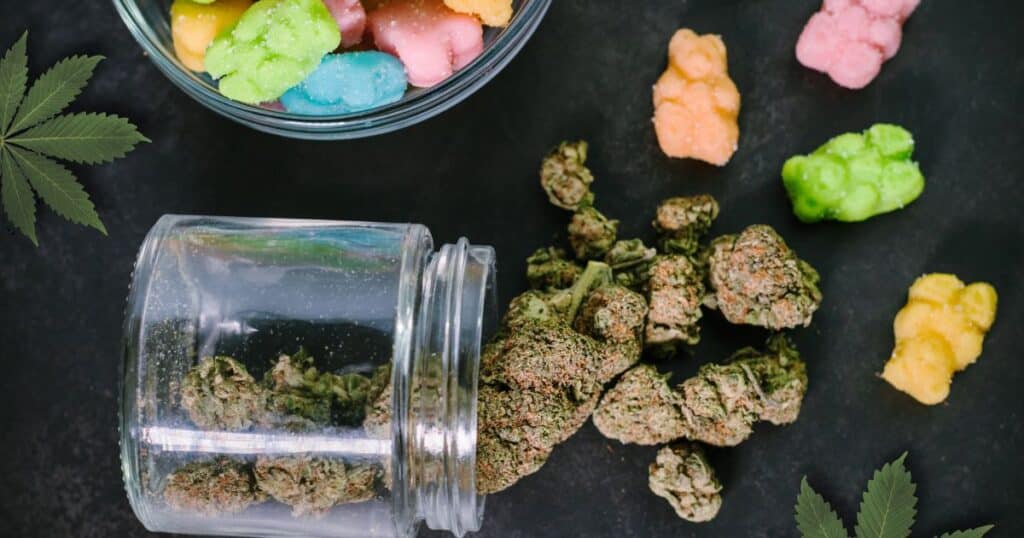The legalization of cannabis in New Jersey has opened up new opportunities for the industry, including the expansion of edible products. In a recent development, the New Jersey Cannabis Regulatory Commission (NJ-CRC) has announced that they are seeking public comments on proposed rules to expand edible offerings.
Comments may address various aspects of the proposed regulations to ensure that the final rules reflect the best interests of both consumers and the industry. The public is invited to comment at https://t.co/T0P7Ly7rCR. pic.twitter.com/AYabLG0pRp
— New Jersey Cannabis Regulatory Commission (@NewJerseyCRC) October 17, 2023
This move comes as a positive step towards meeting the demands and preferences of consumers in the state. However, it is also important to note that these proposed rules still have some limitations that may hinder the growth and potential of the industry.
Expanding Edible Products
Under the current regulations, only certain types of infused products are allowed to be sold by medical and recreational shops in New Jersey. These include non perishable items such as pills gummies, and lozenges but do not include perishable products like beverages, chocolates, and baked goods.
The proposed rules aim to expand the types of edible products that can be sold in the state. Per a press release “The rules expand to include ingredients the Food and Drug Administration (FDA) generally regards as safe but prohibits the inclusion of harmful substances. In addition, ingestible products will only include shelf-stable, ready to use items that do not require cooking, baking, or storage in sterile environments.”
“We believe that cannabis edibles have the potential to provide an alternative and convenient method for adults to access cannabis, and the proposed regulations aim to establish clear guidelines for their responsible production, labeling, and sale,” said NJ-CRC Executive Director Jeff Brown.
The proposed new regulations are as follows:
“The manufacturing of all ingestible products shall be limited to packaged “non-TCS food” or “shelf stable food.”
“Non-TCS food” or “shelf stable food” means food that is able to be safely stored at room temperature in a sealed container without the need for time or temperature control methods in order to limit pathogenic microorganism growth or toxin formation.
(e) Ingestible products shall only be in the following forms:
1. Syrups or single-serve beverages;
2. Pills, capsules, or tablets;
3. Oral suspensions; and 20
4. A non-TCS food item, such as chocolates, gummies, baked goods
Ingestible products shall not:
1. Be an alcoholic beverage, as defined at N.J.S.A. 33:1-1;
2. Contain tobacco or nicotine;
3. Require cooking or baking by the consumer;
4. Require storage in sterile conditions by the consumer;
5. Contain any controlled dangerous substance, as defined at N.J.S.A
The proposed regulations also limit the amount of mg’s per container and serving.
“For ingestible products, each package of finished cannabis product shall, contain no more than 100 mg of active THC”
” Each single serving of a cannabis product shall contain no more than 10 mg of active THC, or the equivalent weight, as best determined based on THC potency, dependent on form, except that each single serving beverage shall contain no more than five mg of active THC. Each single serving of a cannabis product shall contain no more than 10 mg of active THC, or the equivalent weight, as best determined based on THC potency, dependent on form, except that each single serving beverage shall contain no more than five mg of active THC.”

Moreover, limiting beverages to only contain up to 5 mg of active THC per serving could also hinder the potential growth of this product category. It is important to note that other states with legal cannabis markets have much higher limits for edibles. In California for example you can have a beverage with up to 100mg of THC per beverage.
By being overly restrictive in terms of dosing and allowed form factors, the NJ-CRC may be stifling the potential of its own industry. Edibles are a popular form of consumption for many cannabis consumers, and by limiting options, they could be driving business away from the legal market.
Collaboration with Public Input
Despite these limitations, it is important to recognize that the NJ-CRC’s efforts to seek public comments on proposed rules for expanding edible offerings is a positive first step. It shows that they are open to feedback and willing to work towards meeting the demands and preferences of consumers in New Jersey.
This collaboration between regulators and the public is crucial for the success of any cannabis market. By listening to input from various stakeholders, including industry experts and consumers, regulators can make informed decisions that benefit both the industry and the public.
The comment period, which begins on October 16, 2023, and extends until December 15, 2023, the NJ-CRC invites the public, industry stakeholders, and interested parties to submit their feedback on the proposed rules. You can do that at njcrcgov.info/law.
Enjoyed that first hit? Come chill with us every week at the Friday Sesh for a freshly packed bowl of the week’s best cannabis news!
- Chicago Police Department Revises Policy on Searches Based Solely on Marijuana Odor
- Ohio’s Senate Bill 56 Postponed, Leaving Details of Issue 2 Still Unresolved
- Sports Stars and Well Known Entertainers Join Forces Calling on Trump for Cannabis Reform
- Pinsky and the Brain: Bill White on His Journey to Consulting in Cannabis
- Delaware’s Recreational Cannabis Market Finally Set to Launch After Years of Challenges
- Excise Tax Increase to 19% and Its Impact on California Retailers














